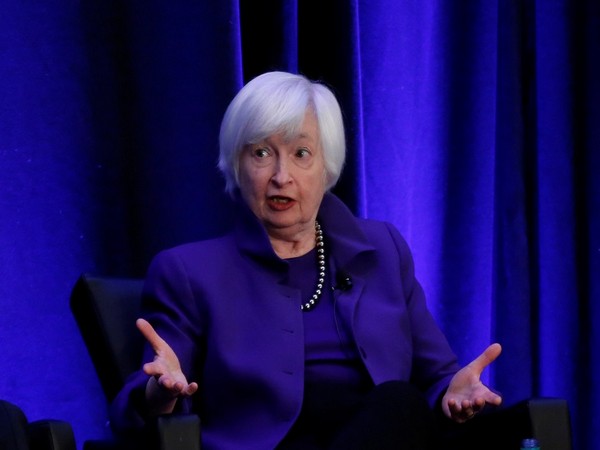Yellen, Harris to push childcare investments as boost for overall economy
The Treasury report laid out what it called the multiple market failures of the current system, which relies on private financing, and urged changes that would allow parents to contribute more fully to the economy and make a solid living. It noted that the average family with at least one child under the age of 5 now must devote about 13% of family income to pay for childcare, but Biden's proposals would reduce that amount to no more than 7%, it said.

- Country:
- United States
U.S. Treasury Secretary Janet Yellen and Vice President Kamala Harris will urge Congress on Wednesday to back proposed spending on affordable childcare, armed with a new Treasury report that maps out big benefits such care offers the economy. Congress is considering a $3.5 trillion package of measures that would include free preschool for all 3- and 4-year olds; boost pay for childcare workers, 95% of whom are women; cut the costs of such care in half for most families; and make permanent a child and dependent care tax credit.
The Internal Revenue Service will distribute a third round of child tax credit payments on Wednesday, handing parents a key lifeline given the expiration of pandemic unemployment benefits and the Supreme Court's decision to strike down a federal eviction moratorium. The Treasury said the measures would expand both childcare supply and demand, providing lifelong positive effects for children, their parents, and the economy as a whole.
“It’s past time that we treat childcare as what it is – an element whose contribution to economic growth is as essential as infrastructure or energy,” Yellen said in a statement. Enacting President Joe Biden's proposals was "the single most important thing we can do to build a stronger economy over the next several decades," she said.
The Treasury said the current situation was "unworkable" and said improving access to affordable, high-quality care - a market estimated at some $60 billion in 2019 - would have multiple positive spillover effects for wages, society at large and employment. "A well-funded child care sector will help parents remain in the labor force, work the number of hours and schedule that are best for their career and family, earn a living and join in our shared economic prosperity," it said.
Harris - who is using her first visit to the Treasury since taking office to make a joint pitch with Yellen for the childcare provisions - has called the pandemic-triggered mass exodus of women leaving the workforce https://www.reuters.com/article/us-health-coronavirus-women-jobs/pushed-out-by-pandemic-women-struggle-to-regain-footing-in-u-s-job-market-idUSKBN2AW19Y "a national emergency." "The growth of our economy is directly tied to these women," a senior administration official, speaking on condition of anonymity, told Reuters, adding that Harris plans further public engagements on the legislation in coming weeks given the "critical juncture" of the congressional negotiations.
Last month, the vice president highlighted the importance of affordable childcare https://www.reuters.com/article/usa-biden-companies-idCNL1N2PJ0WD for improving U.S. competitiveness during a meeting with top executives of seven companies, including Microsoft Corp and Etsy, noting that it also directly affected recruitment, retention, worker productivity and corporate profits. The Treasury report laid out what it called the multiple market failures of the current system, which relies on private financing, and urged changes that would allow parents to contribute more fully to the economy and make a solid living.
It noted that the average family with at least one child under the age of 5 now must devote about 13% of family income to pay for childcare, but Biden's proposals would reduce that amount to no more than 7%, it said. The United States ranks 35th of 37 countries tracked by the Organization for Economic Cooperation and Development (OECD) in public dollars spent on early childhood education and care, relative to gross domestic product.
While France invests about $7,000 per child from infancy to 5 years old, the United States invests just $2,400. That in turn depresses income for childcare workers, the report noted. With average annual pay of $24,230, more than 15% of childcare workers live below the poverty line in 41 states, forcing them to rely on public services for their economic needs, the report said.
(This story has not been edited by Devdiscourse staff and is auto-generated from a syndicated feed.)
ALSO READ
If we will live unitedly, nobody will be able to harm us: Bengal CM Mamata Banerjee at Eid prayer in Kolkata.
Joe Biden hosts Japan's PM at White House, in strong message to China over policies in Indo-Pacific
Joe Biden vows 'ironclad' support for Israel's security amid threats from Iran
Soccer-Sheffield United to begin their next EFL season with two point deduction
Soccer-Sheffield United to begin their next EFL season with two point deduction










